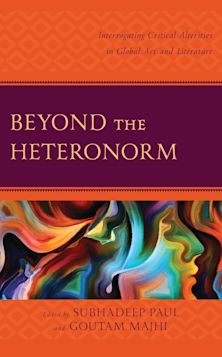- Home
- ACADEMIC
- Gender & Sexuality Studies
- Gender and Sexuality Studies - Other
- Negotiating Gendered Discourses
Negotiating Gendered Discourses
Michelle Bachelet and Cristina Fernández de Kirchner
Negotiating Gendered Discourses
Michelle Bachelet and Cristina Fernández de Kirchner
You must sign in to add this item to your wishlist. Please sign in or create an account
Description
It has been argued that the first presidential campaign of Michelle Bachelet in Chile and Cristina Fernández de Kirchner in Argentina used a rhetoric of newness. Some political observers have said that as the “first women” to successfully run for the highest office in these countries, they were presented as the new faces of democracy. These observers argued that gender was not a determining factor in their electoral success, but the focus on this “first women” frame did generate heavily gendered criticisms of these two candidates. Negotiating Gendered Discourses addresses these views by asking how the gender factor is negotiated when women from the Southern Cone of Latin America run for high political office. In particular, Jane L. Christie examines how Bachelet and Fernández positioned themselves in relation to the numerous women-led social movements, and in doing so, reveals points of intersection between these contemporary political discourses and existing sources of female authority when negotiating complicated ideological debates about human rights, the economy, and women’s rights.
Table of Contents
Chapter II: Human Rights Icons: Feminized Political Leadership Frames
Chapter III: Economic Policy Claims
Chapter IV: Feminist Policy Claims
Product details
| Published | 25 Nov 2015 |
|---|---|
| Format | Ebook (Epub & Mobi) |
| Edition | 1st |
| Extent | 232 |
| ISBN | 9781498512350 |
| Imprint | Lexington Books |
| Series | Latin American Gender and Sexualities |
| Publisher | Bloomsbury Publishing |
About the contributors
Reviews
-
This book contributes to the ongoing discussion of women’s representation in executive politics. Through the use of feminist CDA, the author aptly shows how gendered frames, expectations, a country’s political history and a politician’s own history all are factors in how women presidents see themselves and how they want to be seen by the political elite and general population.
International Feminist Journal of Politics
-
Christie’s insights on maternalism and female political leadership are intriguing.
Journal of Latin American Studies
-
Jane Christie's provocative study examines a pivotal point in a period of political change in South America. It highlights the strategic appropriation of resonant discourses around the maternal body and the continuation of life; the family and the strengthening of community; the ethics of care; and the functions prescribed to female political leaders that have inhibited their full engagement in a rights-based feminist agenda. This is an exciting contribution to the growing discussion of female political leaders in Latin America and is sure to stimulate debate.
Raylene Ramsay, University of Auckland
-
Negotiating Gendered Discourses provides convincing evidence of the ways Cristina Fernández and Michelle Bachelet skillfully negotiated culturally specific gender-coding as they became the first elected women presidents of Argentina and Chile. Most fascinating is the study’s juxtaposition of these two leaders´ framing of economic policies designed for the majority of citizens: women. Christie’s feminist discourse analysis of women and political power has larger implications for understanding women’s leadership during crisis, and provides insight into strategies used by other world leaders to soften their image, such as those of Angela Merkel in negotiating the refugee crisis in Europe.
Kathryn Lehman, The University of Auckland



































